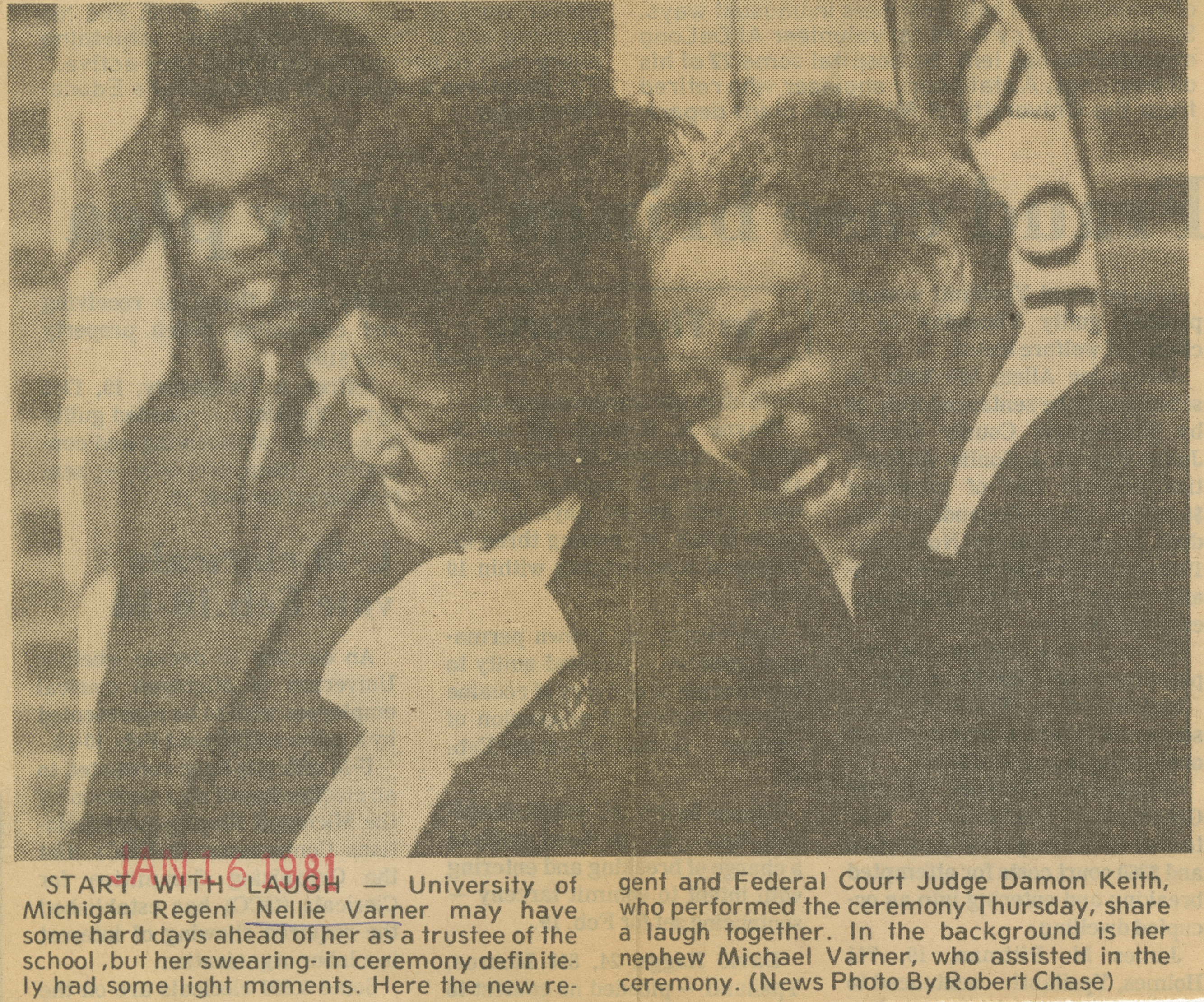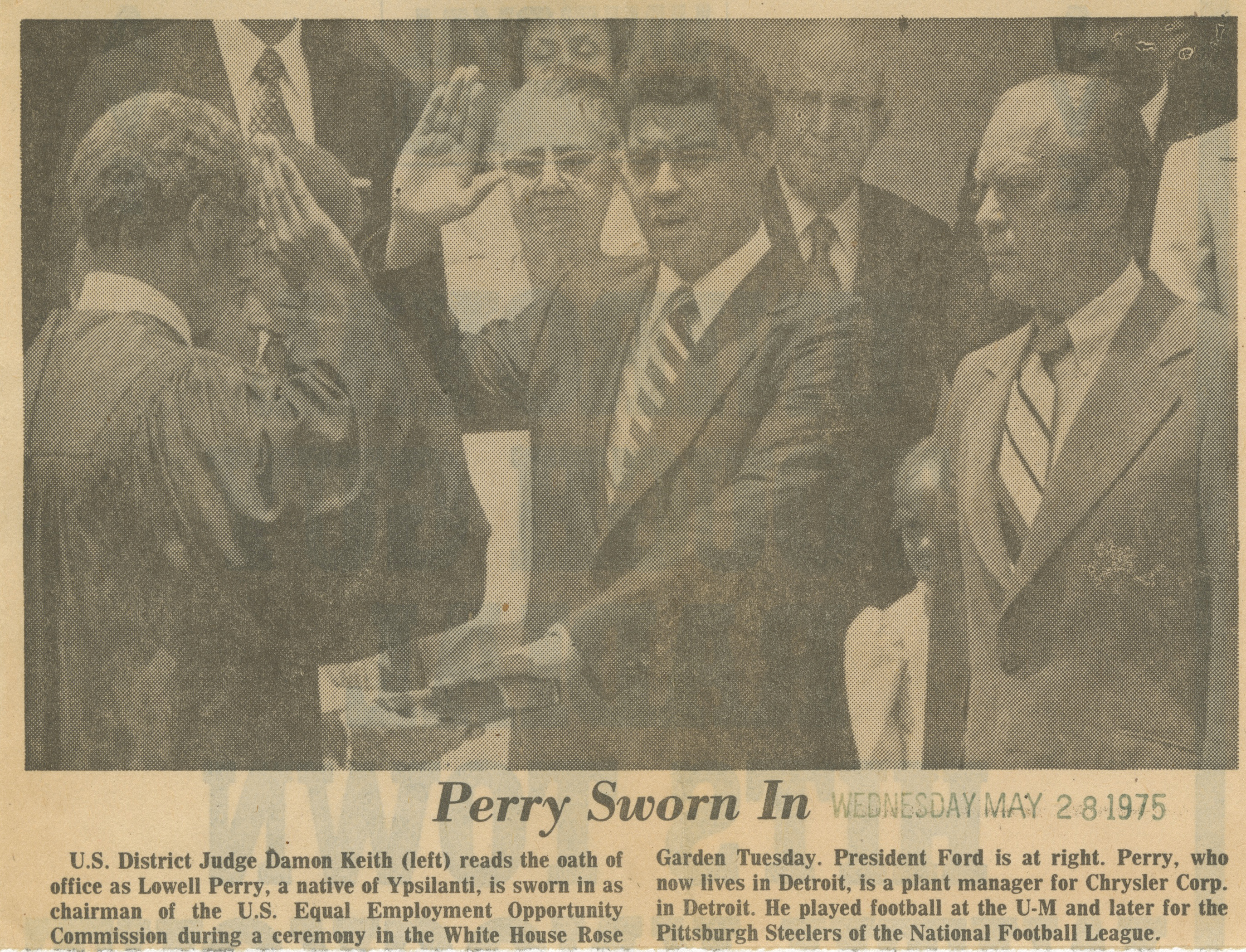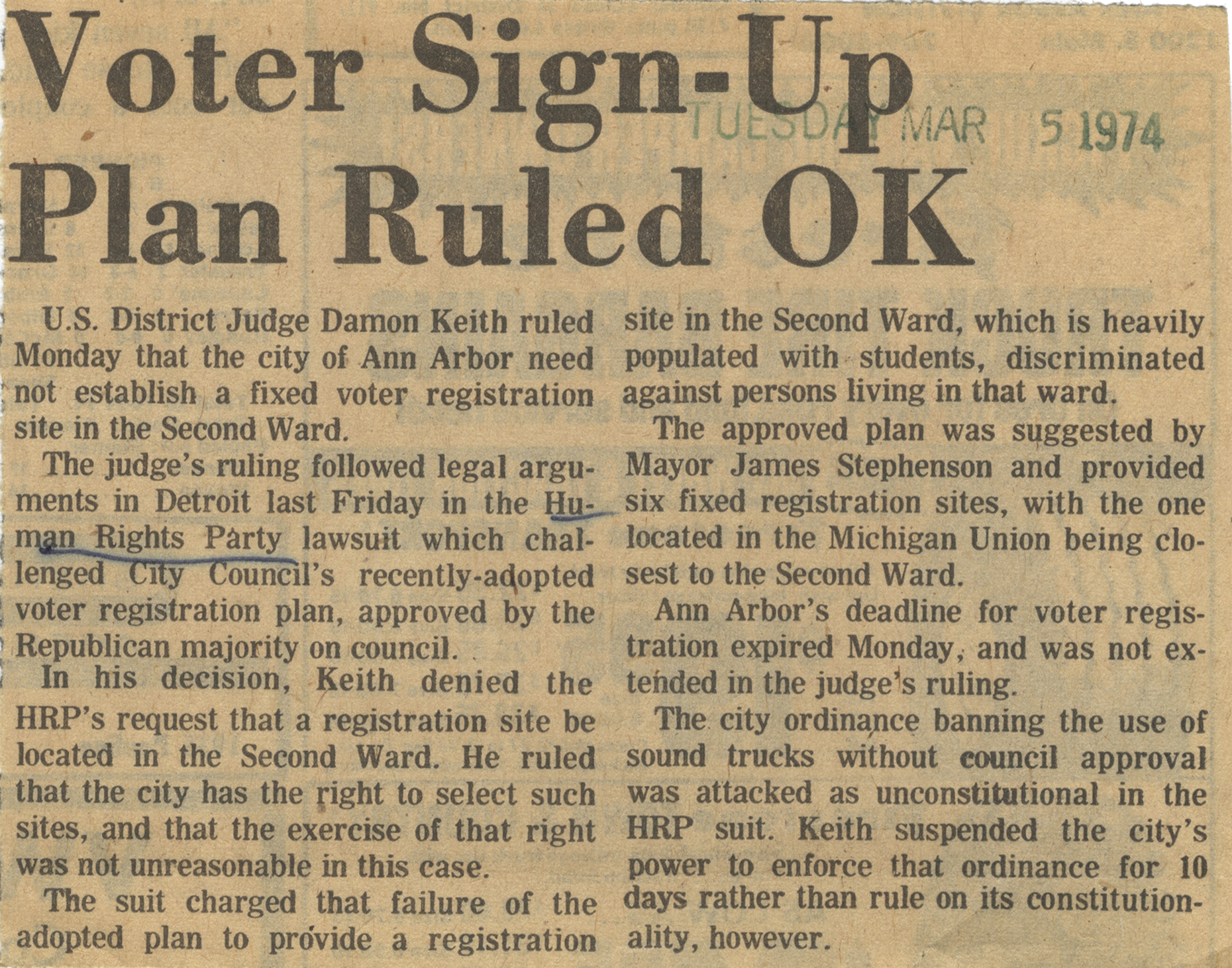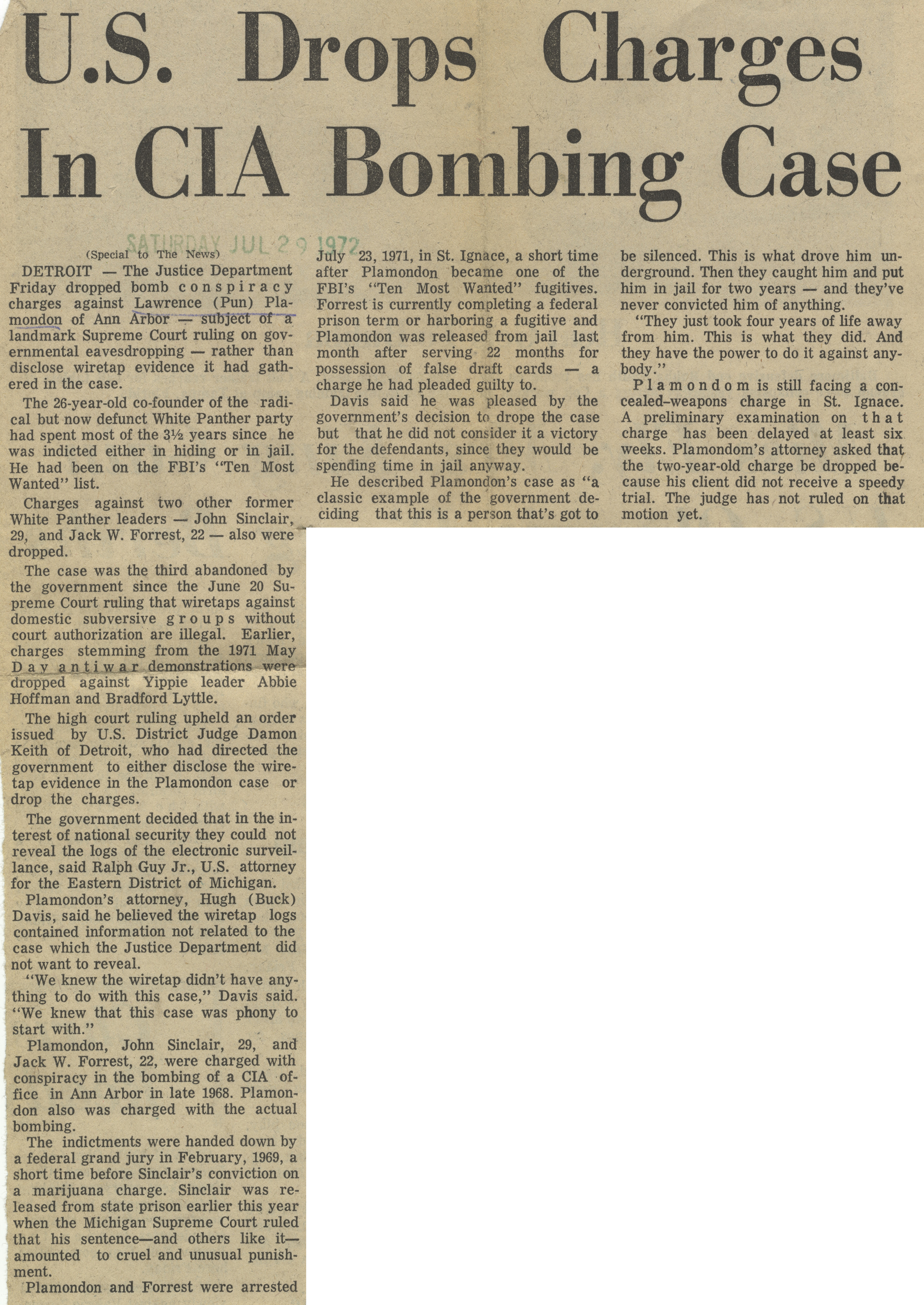Legacies Project Oral History: Roberta Wright
Roberta Hughes Wright was born in 1922 and grew up in Detroit. She attended Howard University at age 15 and completed her bachelor's degree at Wayne State University. During the course of her career she was an X-ray technician, teacher, school social worker, and probate attorney. She earned her PhD from the University of Michigan and a JD from Wayne State. After the passing of her first husband Wilbur B. Hughes II, she married Charles H. Wright, founder of the Charles H. Wright Museum of African American History in Detroit. She wrote several books, including an autobiography titled Reflections of My Life and Lay Down Body: Living History in African American Cemeteries. She passed away on April 2, 2019.
Roberta Hughes Wright was interviewed in partnership with the Museum of African American History of Detroit and Y Arts Detroit in 2010 as part of the Legacies Project.
Judge Allows Girls To Play; Match In Doubt

- Read more about Judge Allows Girls To Play; Match In Doubt
- Log in or register to post comments
Start With Laugh

- Read more about Start With Laugh
- Log in or register to post comments
Perry Sworn In

- Read more about Perry Sworn In
- Log in or register to post comments
Friends Remember Wheeler

- Read more about Friends Remember Wheeler
- Log in or register to post comments
AADL Talks To David Fenton
While he was in town during the 40th anniversary of the John Sinclair Freedom Rally, we had the chance to sit down and chat with David Fenton about his time in Ann Arbor during the late 1960s and early 1970s. During these years David lived at the Hill Street Commune, worked on the Ann Arbor Sun, and helped with the campaign to free John Sinclair. David discusses Sinclair's influence on his personal and professional life; reflects on the excesses - both good and bad - of the countercultural movement as he experienced it, and its legacy 40 years later in its modern counterparts, including moveon.org and the Occupy Wall Street movement.
David also participated in our panel discussion, Culture Jamming: A Long View Back.
AADL Talks To: Pun Plamondon
Pun Plamondon was a directionless teen with left-wing leanings when he met John Sinclair, Leni Sinclair, and Gary Grimshaw in Detroit in the mid-1960s. He grew to become the co-founder of the White Panther Party/Rainbow People's Party as well as its Minister of Defense. In that role he found himself on the run as one of the FBI's Ten Most Wanted Criminals and the subject of a case before the United States Supreme Court. In this episode we talk to Pun about that journey, including the formation of the White Panther Party and Rainbow People’s Party, being there for some of the key events in 1960s Ann Arbor, and finding his Native American roots.
AADL Talks To: Leni Sinclair
In this interview, photographer and activist Leni Sinclair recalls the origins of the Detroit Artists Workshop and first Trans-Love commune in Detroit, and their strategic retreat to Ann Arbor following the Detroit Riots. She also talks about the groups' politicization as the White Panther Party and reflects on life at their Hill Street commune, including what led to its breakup in the mid 1970s.
Voter Sign-Up Plan Ruled OK

- Read more about Voter Sign-Up Plan Ruled OK
- Log in or register to post comments
U.S. Drop Charges in CIA Bombing Case

- Read more about U.S. Drop Charges in CIA Bombing Case
- Log in or register to post comments